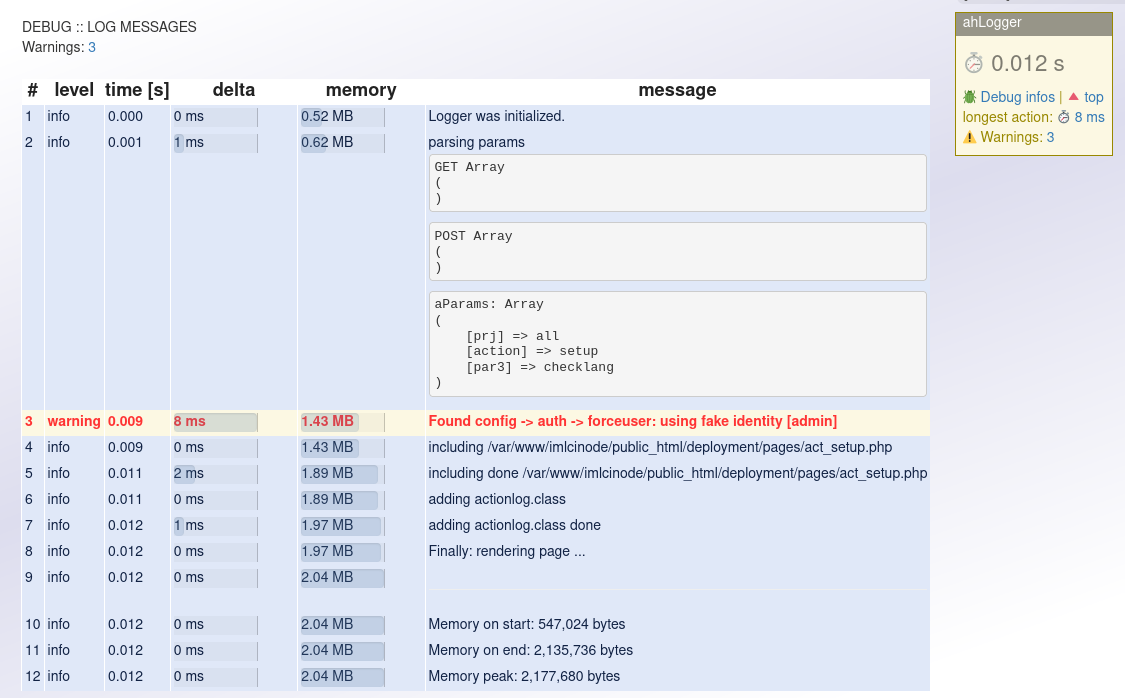Table of Contents
Usage
Initialization
Load the class file and instanciate it without params
// load the class file
require '../classes/logger.class.php';
// optional: if you have a central wrapper then set a global var
global $oLog;
// inialize it
$oLog = new logger();
Debug or measure something
With the add method yo can send
- a string as first parameter and
- optional: a loglevel as 2nd param. (default: “info”); other values you can define by yourself; common values are “warning” and “error”.
If you test some code you maybe manually write print_r() or var_dump() into your PHP files. With this class you always can use the add () method. If the debug information is visible or not you can handle with the execution of the output function render().
Add debug data
A very useful example is to add the GET and POST params. Later it will be dumped as html so use the pre tag and print_r():
$oLog->add("INFO: all GET params: <pre>" . print_r($_GET,1) . "</pre>");
$oLog->add("INFO: all POST params: <pre>" . print_r($_POST,1) . "</pre>");
Measure execution times
Trigger a message with add() to add a marker. Just use add() before and after any action you want to track. It can be an API request, a database query or an exec command.
$oLog->add("start db request");
$sSql='select id, label, description from mytable;';
// ... make your query
$oLog->add("sql query finished: " . $sSql);
Use a global log object
If you init the logger globally you can put requests into your class
Example:
/**
* add a log messsage
* @global object $oLog
* @param string $sMessage messeage text
* @param string $sLevel warnlevel of the given message
* @return bool
*/
private function log($sMessage, $sLevel = "info") {
global $oLog;
if (!$oLog ||! is_object($oLog) || !method_exists($oLog, "add")){
return false;
}
return $oLog->add("class " . __CLASS__ . " - " . $sMessage, $sLevel);
}
Show debug data
The render() method will show you a table of all added log messages and tracks the processed time since init of the class and the delta time since the last logging entry.
For production do not execute render method. Wrap it with a flag. Maybe you aneble it on a given IP address or a GET param (which is unsafe) or based on a authenticated user.
if ($bIsDevelopEnvironment){
echo $oLog->render();
}
The slowest action will be marked in red.
Other colors of table rows you can define in your css class.
An additional div on top right shows the execution time total and the time of the longest action (with a link to it).

For CLI usage there is a render function for cli output:
if ($bIsDevelopEnvironment){
echo $oLog->renderCli();
}